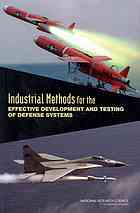

Most ebook files are in PDF format, so you can easily read them using various software such as Foxit Reader or directly on the Google Chrome browser.
Some ebook files are released by publishers in other formats such as .awz, .mobi, .epub, .fb2, etc. You may need to install specific software to read these formats on mobile/PC, such as Calibre.
Please read the tutorial at this link: https://ebookbell.com/faq
We offer FREE conversion to the popular formats you request; however, this may take some time. Therefore, right after payment, please email us, and we will try to provide the service as quickly as possible.
For some exceptional file formats or broken links (if any), please refrain from opening any disputes. Instead, email us first, and we will try to assist within a maximum of 6 hours.
EbookBell Team

4.8
64 reviewsDuring the past decade and a half, the National Research Council, through its Committee on National Statistics, has carried out a number of studies on the application of statistical methods to improve the testing and development of defense systems. These studies were intended to provide advice to the Department of Defense (DOD), which sponsored these studies. The previous studies have been concerned with the role of statistical methods in testing and evaluation, reliability practices, software methods, combining information, and evolutionary acquisition.
Industrial Methods for the Effective Testing and Development of Defense Systems is the latest in a series of studies, and unlike earlier studies, this report identifies current engineering practices that have proved successful in industrial applications for system development and testing. This report explores how developmental and operational testing, modeling and simulation, and related techniques can improve the development and performance of defense systems, particularly techniques that have been shown to be effective in industrial applications and are likely to be useful in defense system development. In addition to the broad issues, the report identifies three specific topics for its focus: finding failure modes earlier, technology maturity, and use of all relevant information for operational assessments.